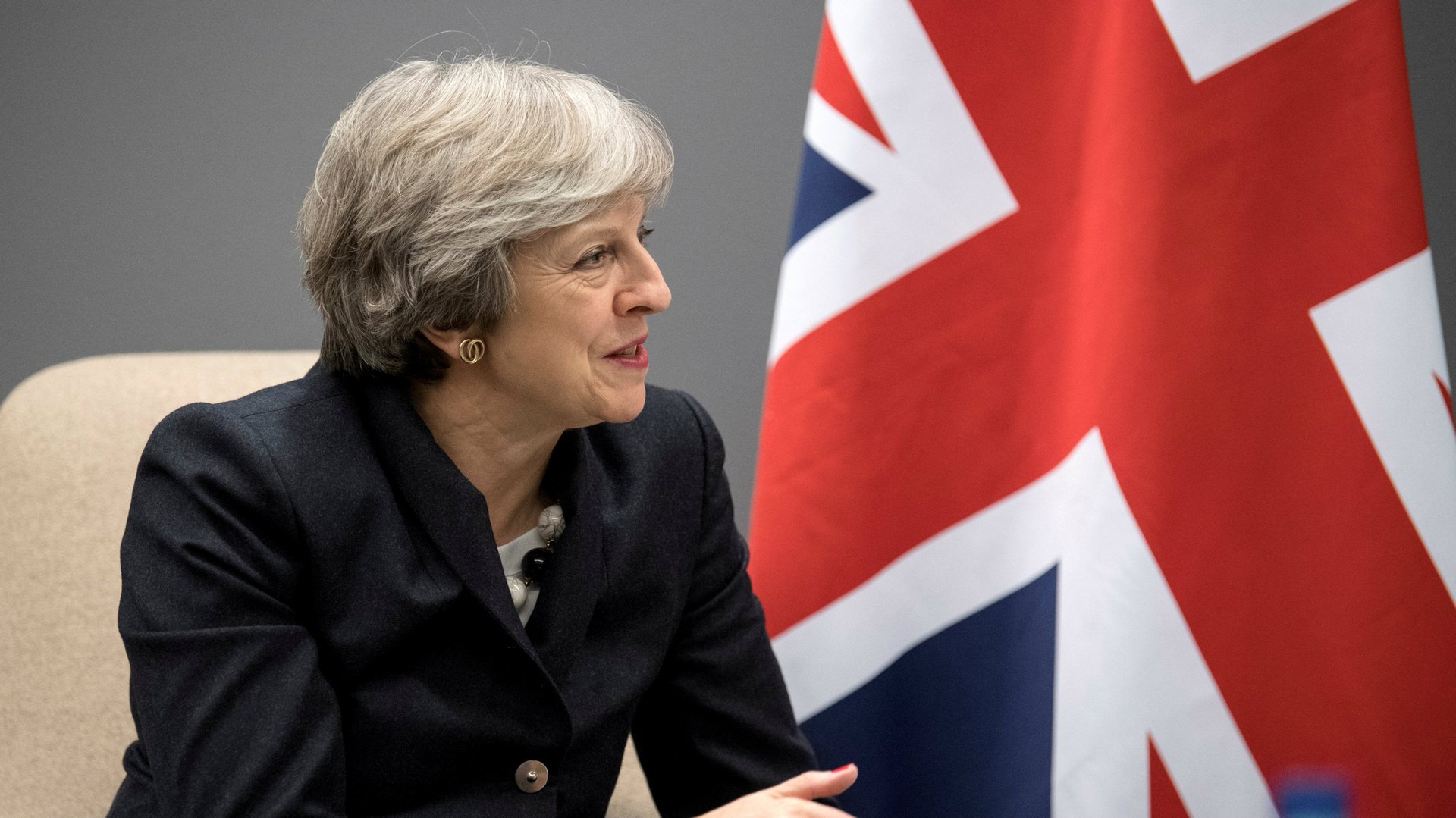Everything you need to know about the Brexit “divorce bill”
The UK is leaving the European Union—likely in 2019—but before it does, it has to agree on what it will pay the bloc on its departure (alongside determining EU citizens’ rights and the status of the Northern Irish border). More commonly known as the “divorce bill,” only once the amount is agreed upon, can the UK start the rest of its negotiations on leaving the EU.


The UK is leaving the European Union—likely in 2019—but before it does, it has to agree on what it will pay the bloc on its departure (alongside determining EU citizens’ rights and the status of the Northern Irish border). More commonly known as the “divorce bill,” only once the amount is agreed upon, can the UK start the rest of its negotiations on leaving the EU.
Talks are looking pretty fraught because there is still no agreement on the final amount and it has been around eight months since Britain formally declared its departure by triggering Article 50, leaving just over a year to crack on with some of the most complex parts of negotiations, such as trade and immigration.
Why does Britain have to pay anything to the EU if it is leaving?
When Britain became a member of the 28-nation bloc, it agreed to a whole range of rules—including the EU’s long-term budget and contributing to huge infrastructure projects that have a long time frame for completion.
Britain signed up to the EU’s budget framework when it became a member; budgets are not calculated year by year. The EU budget is a “legal act” and is over a seven year span. The last one started in 2014 and it ends in 2020. So, when Britain leaves the EU—tentatively set for March, 2019—it will still be liable to pay its share for the remaining seven quarters—from April 2019 until the end of 2020.
Even if Britain leaves in 2019, if there are projects it agreed to contribute to that are meant to be completed by 2030, it would still have to pay for what it promised to fund at the time. This is the same for if a project in the UK was meant to be completed by 2030—EU members would have to continue paying the UK.
How much does Britain owe?
There is no finite number of what the EU is demanding, publicly, and since the talks are behind closed doors, it is difficult to gauge what the EU expects. However, European Commission president Jean-Claude Juncker previously suggested €60 billion (currently $70.4 billion) as a figure. Others have independently pegged it closer to the €30 billion mark.
This week, the UK prime minister Theresa May is reportedly thinking of upping the offer (paywall) that Britain is willing to pay the EU in the divorce bill to €40 billion, from around €20 billion. However, the BBC is reporting the figure at up to £40 billion.
The difference between 40 billion in pounds and euros is about $6 billion—not insubstantial.
The Financial Times reported that May “will not put a precise figure on the offer but instead give greater detail on how it would be calculated” in the UK’s next round of negotiations with the EU.
But isn’t Britain owed anything for leaving?
The final amount will deduct agreements and assets the UK has with the EU.
Britain is estimated to have around €150 billion in assets that it purchased during its EU membership, including cash and property (paywall). On top of that, since the EU spends around €7 billion a year in Britain, so if these payments were deducted, it would reduce the final bill but a large amount.